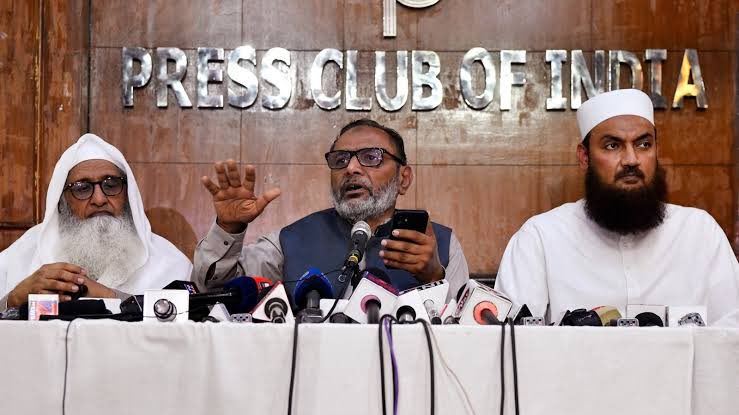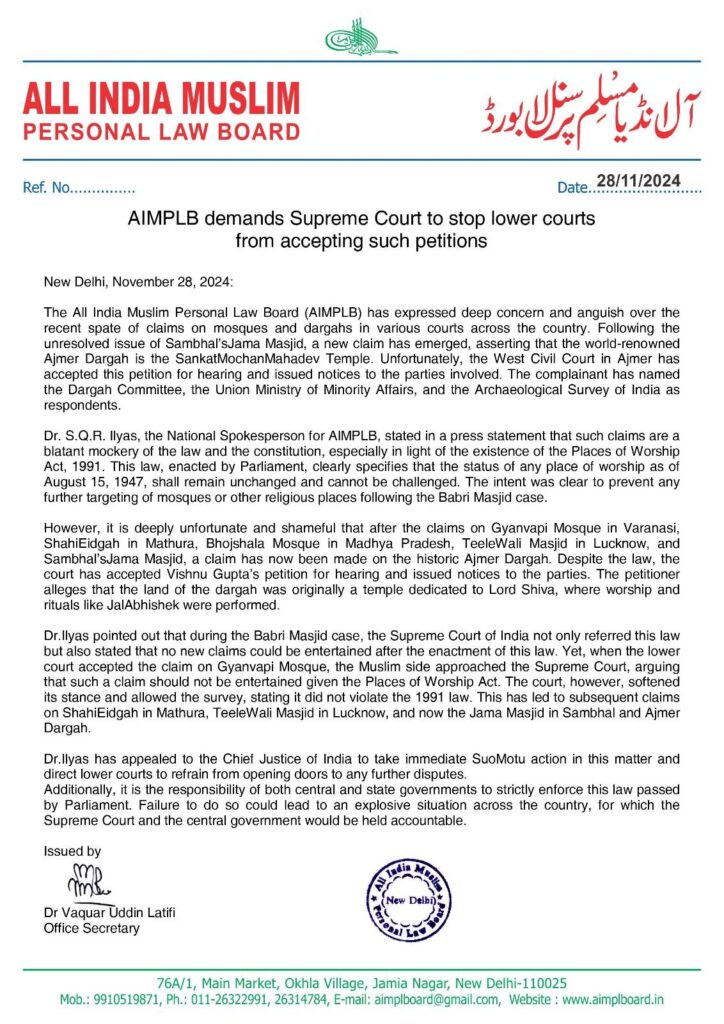The All India Muslim Personal Law Board (AIMPLB) has raised significant concerns over recent petitions filed in courts across the country claiming the existence of Hindu temples in Islamic religious sites. The board described these claims as a “blatant mockery” of the law and the Constitution, urging the Supreme Court to intervene and direct lower courts to refrain from entertaining such disputes.

The board’s statement came after a local court in Ajmer issued notices regarding a petition that claims there is a Hindu temple within the world-renowned Ajmer Sharif Dargah. This follows similar petitions regarding other mosques and dargahs in various parts of the country.
In a statement, AIMPLB condemned the recent surge of such claims, highlighting a new one regarding the Ajmer Dargah, asserting that it was once the Sankat Mochan Mahadev Temple. The board noted that the West Civil Court in Ajmer had accepted this petition and issued notices to the Dargah Committee, the Ministry of Minority Affairs, and the Archaeological Survey of India.

Dr. S.Q.R. Ilyas, National Spokesperson for AIMPLB, emphasized that these claims are a direct violation of the Places of Worship (Special Provisions) Act, 1991, which prohibits the alteration of the religious character of any place of worship as it stood on August 15, 1947. This law was introduced to prevent further disputes over religious sites following the Babri Masjid demolition. Dr. Ilyas criticized the court’s decision to entertain the petition despite this law, calling it a “mockery of the Constitution.”
The AIMPLB’s statement also mentioned a troubling trend of similar claims being filed in recent years, including disputes over the Gyanvapi Mosque in Varanasi, Shahi Eidgah in Mathura, Bhojshala Mosque in Madhya Pradesh, Teele Wali Masjid in Lucknow, and the Jama Masjid in Sambhal. Now, with the new claim on the Ajmer Dargah, the board expressed deep concern about the growing number of such petitions.
Dr. Ilyas referred to the Supreme Court’s previous remarks in the Babri Masjid case, where it reiterated the sanctity of the 1991 law and declared that no new claims could be entertained regarding places of worship. Despite this, lower courts have allowed claims to proceed, including those related to the Gyanvapi Mosque and other sites. The board cited the Supreme Court’s decision in the Gyanvapi case, where it allowed a survey despite objections, arguing that it did not violate the Places of Worship Act.
The rise in such disputes has escalated tensions across the country, with violent incidents occurring in Uttar Pradesh’s Sambhal during a court-ordered survey of a mosque. The survey aimed to verify claims of a Hindu temple’s presence within the mosque, leading to clashes that resulted in four deaths and numerous injuries.
In light of this, the AIMPLB has called on Chief Justice of India Sanjiv Khanna to take suo motu action to prevent any further escalation of temple-mosque disputes and to uphold the integrity of the Places of Worship Act. The board seeks to ensure that religious harmony and the constitutional framework are respected in all matters concerning religious sites.



